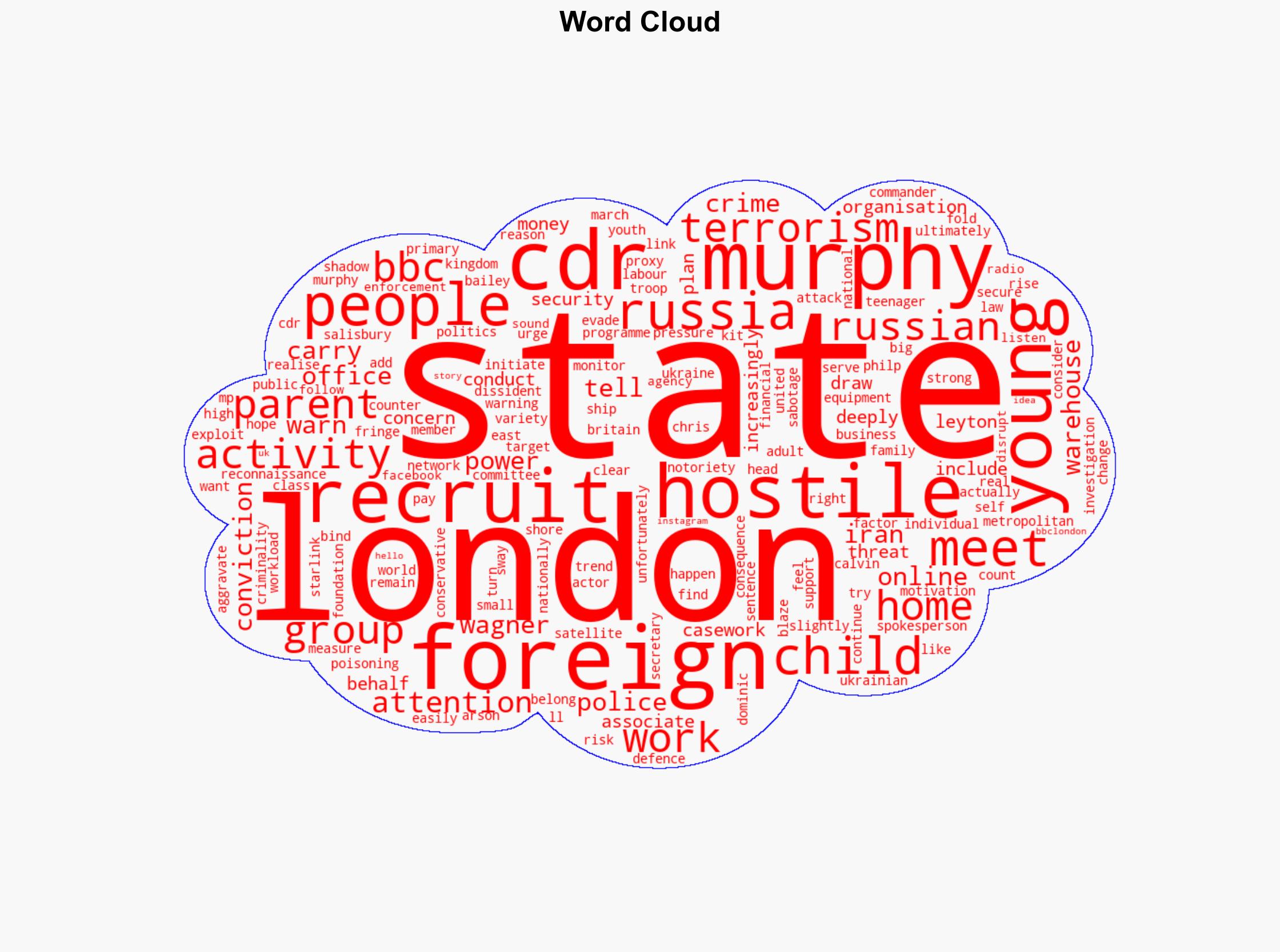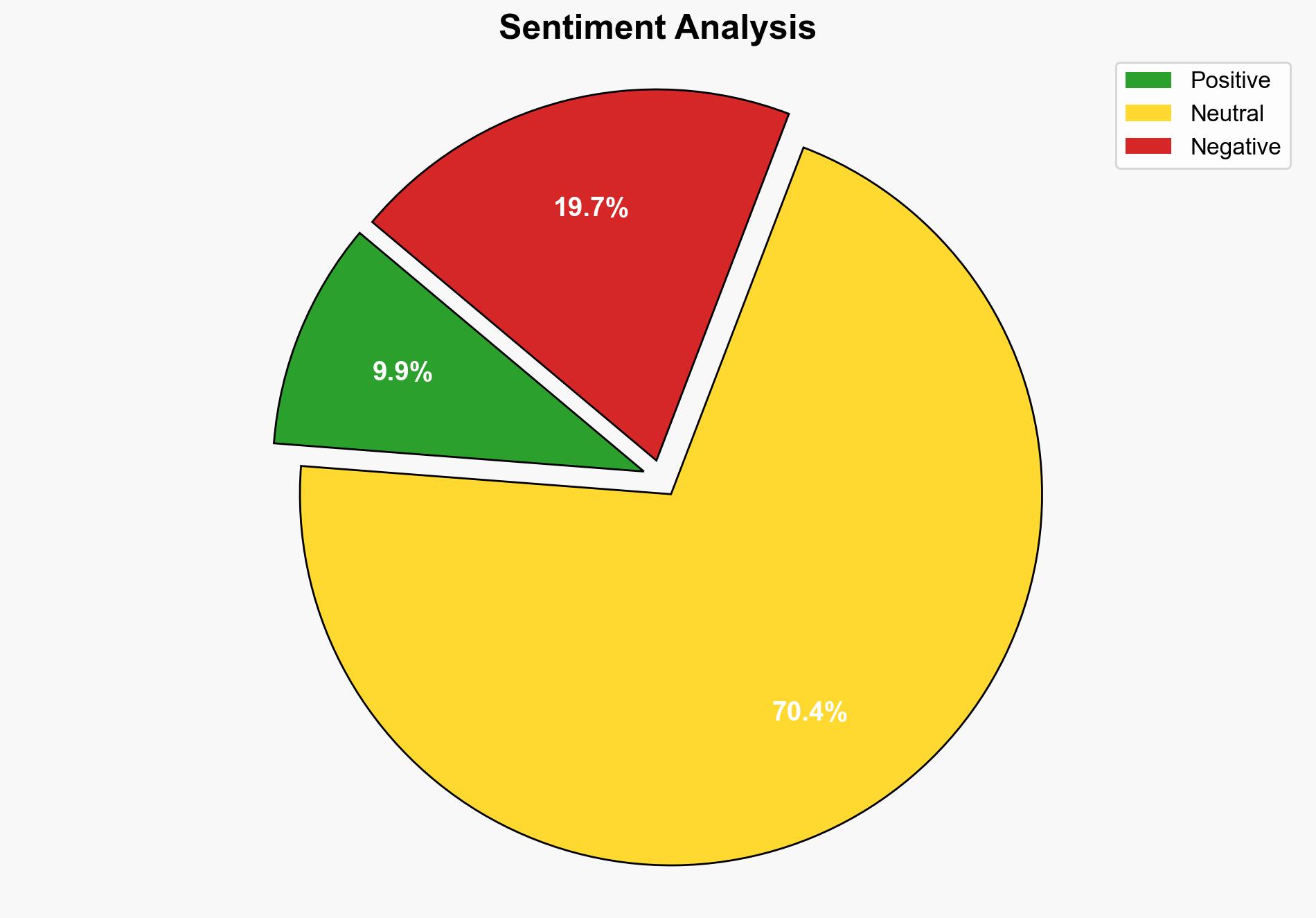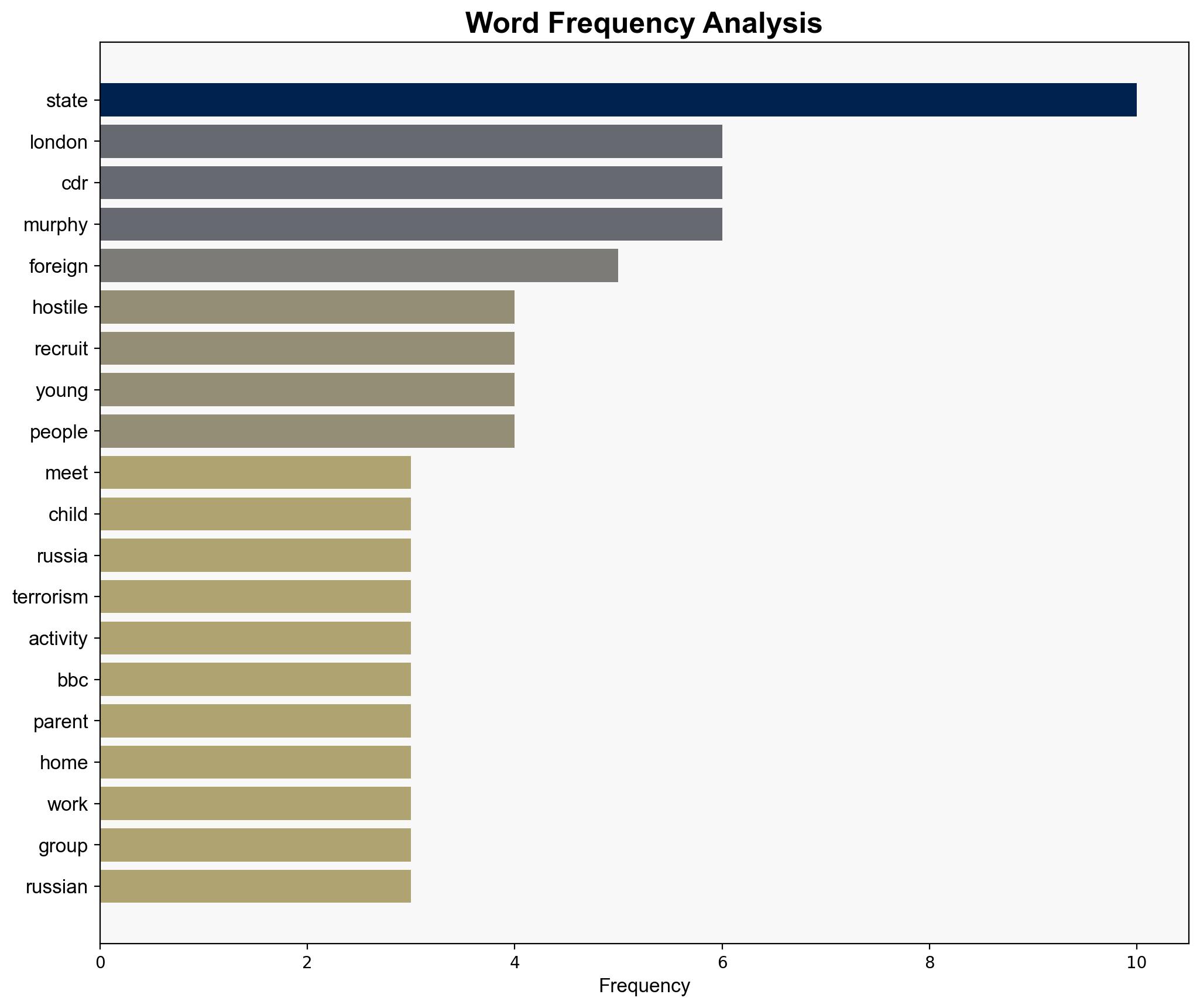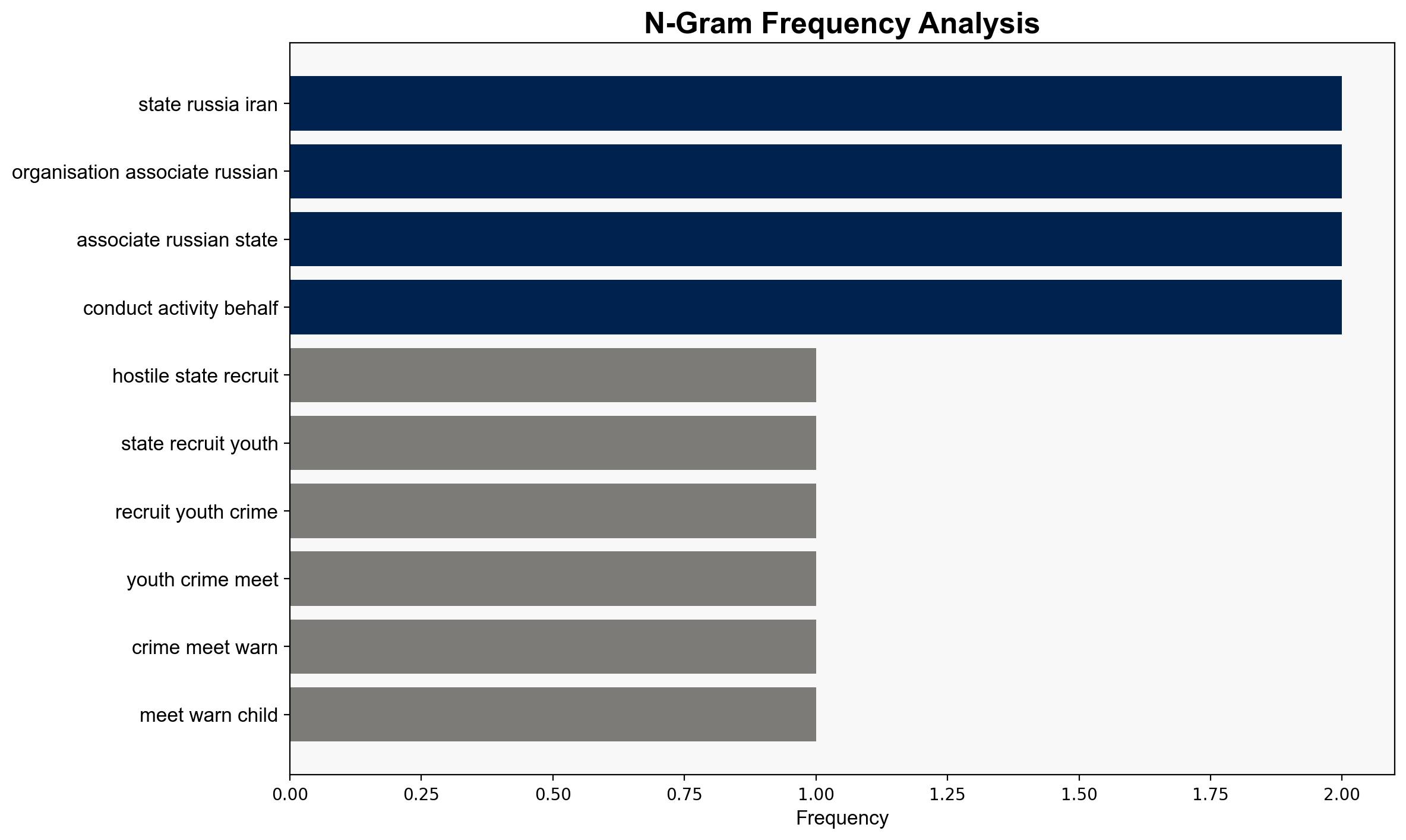Hostile states recruit youths for crime Met warns – BBC News
Published on: 2025-09-28
Intelligence Report: Hostile states recruit youths for crime Met warns – BBC News
1. BLUF (Bottom Line Up Front)
Hostile states, particularly Russia and Iran, are allegedly recruiting young individuals in the UK for criminal activities, potentially as a strategy to evade traditional security measures. The most supported hypothesis is that these states are leveraging youth to conduct low-level sabotage and reconnaissance, exploiting their vulnerabilities for strategic advantage. Confidence in this assessment is moderate due to limited direct evidence. Recommended action includes enhancing monitoring of youth online activities and increasing public awareness campaigns to mitigate recruitment risks.
2. Competing Hypotheses
1. **Hypothesis A**: Hostile states are actively recruiting UK youths for criminal activities as a strategic method to bypass conventional security measures and create internal disruption.
2. **Hypothesis B**: The recruitment narrative is exaggerated and primarily serves as a political tool to justify increased surveillance and counter-terrorism measures within the UK.
Using ACH 2.0, Hypothesis A is better supported by the evidence, including specific incidents linked to Russian entities and the Wagner Group. However, Hypothesis B cannot be entirely discounted due to the potential for political motivations influencing the narrative.
3. Key Assumptions and Red Flags
– **Assumptions**: It is assumed that the recruitment is state-sponsored and not merely opportunistic criminal activity. Another assumption is that the youth are aware of the foreign state affiliation.
– **Red Flags**: Lack of concrete evidence directly linking state actors to the recruitment efforts. Potential bias in reporting, given the political context.
– **Blind Spots**: Limited insight into the motivations and decision-making processes of the recruited individuals.
4. Implications and Strategic Risks
The recruitment of youths for criminal activities could lead to increased domestic instability and strain on law enforcement resources. It may also escalate tensions between the UK and the implicated states, potentially leading to diplomatic or cyber confrontations. The psychological impact on communities and the potential radicalization of youth are significant concerns.
5. Recommendations and Outlook
- Enhance digital literacy and awareness programs targeting youth and parents to recognize and report suspicious activities.
- Strengthen collaboration between law enforcement and social media platforms to monitor and counter recruitment efforts.
- Scenario Projections:
- Best Case: Successful disruption of recruitment networks with minimal impact on UK youth.
- Worst Case: Escalation of recruitment leading to significant domestic threats and international tensions.
- Most Likely: Continued low-level recruitment with occasional incidents, maintaining pressure on counter-terrorism resources.
6. Key Individuals and Entities
– Dominic Murphy
– Calvin Bailey
– Chris Philp
– Wagner Group
7. Thematic Tags
national security threats, cybersecurity, counter-terrorism, regional focus





